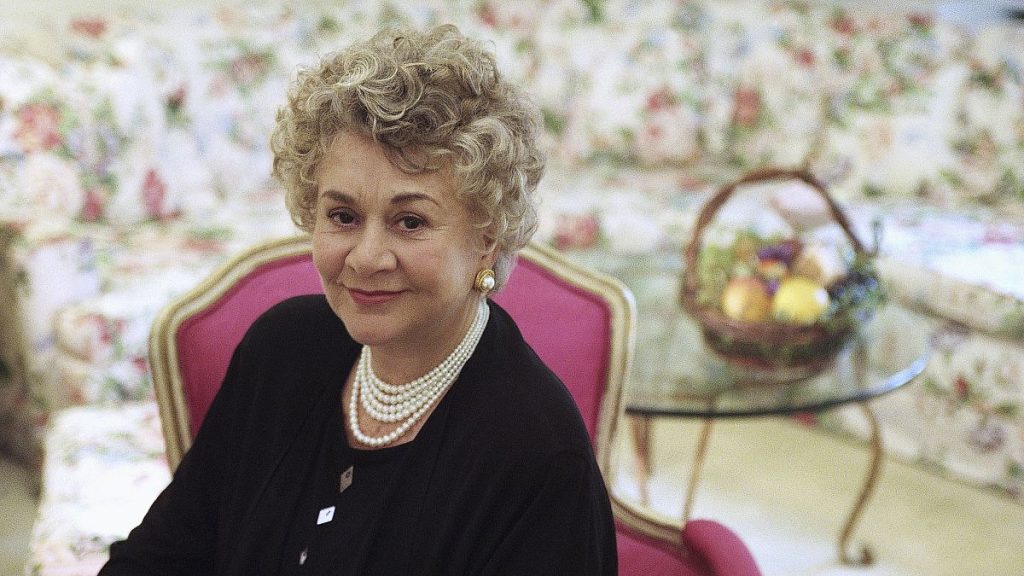Dame Joan Plowright, a luminary of British stage and screen, passed away at the age of 95, leaving behind a legacy of extraordinary performances spanning over seven decades. Her career was a tapestry woven with diverse roles across theatre, film, and television, showcasing her remarkable versatility and unwavering commitment to her craft. From the vibrant stages of London’s West End to the silver screen, Plowright captivated audiences with her nuanced portrayals and commanding presence. Her passing marks the end of an era in British acting, a time when a generation of exceptional talents, including Judi Dench and Maggie Smith, redefined the landscape of dramatic arts.
Plowright’s journey began in the 1950s, amidst a burgeoning wave of new, working-class actors who challenged conventional theatrical norms. She emerged as a prominent figure in this movement, alongside contemporaries like Albert Finney, Alan Bates, and Anthony Hopkins. Her early career was marked by a string of acclaimed stage performances, showcasing her ability to embody characters from diverse backgrounds and literary traditions. From Chekhov’s poignant “The Seagull” to Shakespeare’s complex “The Merchant of Venice,” Plowright demonstrated her mastery of classical texts, breathing new life into iconic roles. She also embraced the works of contemporary playwrights, including John Osborne, Shelagh Delaney, and Arnold Wesker, contributing to the evolution of modern British theatre.
One of Plowright’s most significant stage triumphs came in 1960 with her Tony Award-winning performance in “A Taste of Honey.” This poignant play, exploring themes of class and social inequality, resonated deeply with audiences and solidified Plowright’s reputation as a powerful dramatic actress. Her portrayal of a struggling single mother in a working-class milieu showcased her ability to capture the raw emotions and complexities of human experience. This performance marked a pivotal moment in her career, establishing her as a force to be reckoned with on both sides of the Atlantic.
Beyond her classical and contemporary repertoire, Plowright also shone in the absurdist theatre of Eugene Ionesco, demonstrating her versatility and willingness to embrace challenging roles. Her performance in “The Chairs,” a darkly comic exploration of memory and existentialism, showcased her ability to navigate the complexities of avant-garde theatre. She also tackled the formidable female roles in George Bernard Shaw’s “Major Barbara” and “Saint Joan,” demonstrating her command of language and her ability to embody characters of intellectual and spiritual depth. These diverse roles cemented her reputation as an actress of exceptional range and depth.
Plowright’s talent extended beyond the stage, gracing the world of cinema with memorable performances. In 1991, she received an Academy Award nomination for her role in the film “Enchanted April,” a testament to her ability to transition seamlessly between mediums. Her portrayal of a woman seeking solace and renewal in the idyllic Italian countryside resonated with audiences and critics alike, garnering widespread acclaim. This recognition further solidified her status as a versatile actress, capable of captivating audiences on both the big and small screens.
Beyond her professional achievements, Plowright was recognized for her contributions to the arts and her dedication to her craft. In 2004, she was bestowed with the prestigious title of Dame Commander of the Order of the British Empire by Queen Elizabeth II, a testament to her enduring impact on British theatre and culture. This honor acknowledged her exceptional talent, her unwavering commitment to her art, and her significant influence on generations of actors. Plowright’s legacy extends beyond her individual performances; she served as an inspiration to aspiring artists, a testament to the power of dedication and the pursuit of excellence.














